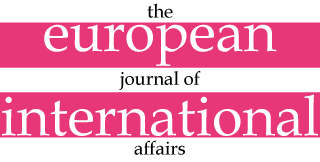The Discordant Nation
The whole historical tragedy of the German nation stems from its being out of step with the other great nations of Western Europe and its temporal dislocation has arisen from basic uncertainty over the space it occupies. Geography first therefore. Germany is that vast stretch of land at the heart of Europe where throughout antiquity the German tribes which came down from Scandinavia spread out and thus became the “continental Germans”.
This huge territory has no natural borders to its West or East and the only barrier in the South is the Alps which are themselves not impassable. Consequently the German tribes expanded across this space in the directions where they encountered the least resistance. They pushed out long tentacles eastwards. One reached Silesia where some of them established themselves in a former Polish province which in the course of history was later incorporated in the Kingdom of Bohemia, then the Hapsburg Empire, then Prussia. The other eastern tentacle was Prussia itself which was founded by the Teutonic Knights in the 13th century on the shores of the Baltic and through an alliance with the Knights of the Sword (Fratres Militiae Christi) eventually reached the Golf of Finland.
Sometimes these extensions were so important that they gave birth not only to new provinces but to new nations as if by parthenogenesis.
Thus in the West the world of lower Germany expanded so far that it finished up by creating the Netherlands, a new nation which escaped and was itself destined in its turn to split into the northern and southern Netherlands. In the centre the Germanic wave spread into the Alps and diversified to the point of giving birth to two nations, the Helvetian and the Austrian. All these extensions were like canals through which the Germanic mass flowed whenever the dikes that constrained it broke open.
Log in to Read More






